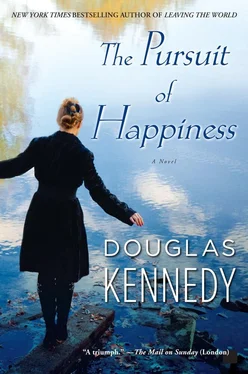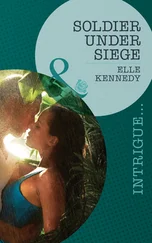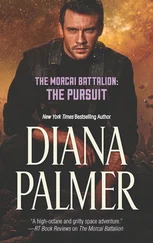But it was only one page.
The next morning, I was up again at sunrise. A fast breakfast, a brisk hike down the beach, a pot of coffee on the stove, and I was sitting in front of the typewriter by eight thirty.
By noon, I had the second page written. Later that night - just before slipping into bed - I re-read my two finished pages. I excised around thirty extraneous words. I tightened up several descriptive passages. I rewrote an awkward sentence, and eliminated one clunker of a metaphor ('His eyes had the seductive glow of a Broadway marquee'... changing it to: 'He had bedroom eyes').
Then, before I could start having a crisis of confidence, I placed the pages face down on the desk.
Up again with the sun. Grapefruit, toast, coffee. The beach. More coffee. The desk.
And I remained at the desk until I finished that day's page.
A work pattern was emerging. My day now had a structure; a purpose. As long as I got a page written, I would feel as if something had been accomplished. Everyone talks about the heady creative pleasures of writing - everyone except those who've actually tried to do it. There's nothing heady about the process. It is a task. Like all tasks, it is only pleasurable in retrospect. You are relieved to have met your daily quota. You hope the work you did today is of a satisfactory nature. Because, come tomorrow, you have to blacken another page at the typewriter. Willfulness is required to get the job done. Willfulness... and a strange sense of confidence. As I was discovering, writing was a confidence trick you played on yourself.
A page a day, six days a week. After the second week of work, I sent a telegram to Eric:
Have decided splendid isolation suits me. Stop. Will be here for another few weeks. Stop. Am doing some writing. Stop. Don't be horrified. Stop. It actually goes well. Stop. Please keep checking my mail for news from Europe or the Department of Enlisted Personnel. Stop. Love, S.
Forty-eight hours later, a Western Union man showed up at the door of the cottage, with Eric's reply:
If you're happy doing something masochistic like writing, then this fellow masochist is happy for you. Stop. I've been checking your mail twice a week. Stop. Nothing from Europe or Washington. Stop. File him away under 'mirage' and move on. Stop. I hate Joe E. Brown. Stop. And I miss you.
For the first time in months, I didn't feel a sharp stab of sadness about Jack. More of a dull discomfort. Tell yourself it wasn't meant to be. And while you're at it, get that next page written.
Another week. Another six pages. As usual, I took Sunday off. I returned to work on Monday. Having spent the first three weeks eking out every page - spending an hour worrying about the construction of a sentence, or scrapping one hundred and fifty words right when I neared the end of a page - I started sprinting at the typewriter. I pounded out three pages on Monday, four on Tuesday. I was no longer obsessively worrying about form, structure, rhythm. I was simply running with the material. It had taken over. It was writing itself.
And then, at 4.02 p.m. (I glanced at my watch) on Wednesday afternoon, April 20th 1946, I came to a halt. For a moment or two, I simply sat bemused in my desk chair, staring at the half-blackened page in the typewriter. The realization dawned.
I had just finished my first short story.
Another few minutes passed. Then I forced myself up, grabbed my coat, and hiked down to the water's edge. I squatted down in the sand, and stared out at the metronomic rhythm of the Atlantic surf. I didn't know if the story was good or bad. My self-deprecating Smythe family instincts told me to accept the fact that it probably wasn't worthy of publication. But, at least, it was completed. And I would revel in that achievement - for a moment or two anyway.
The next morning, I sat down at the kitchen table and read through the twenty-four-page story. It was called 'Shore Leave' - and, yes, it was a fictional reworking of the night I met Jack. Only in this instance, it was set in 1941, and the narrator was a thirty-year-old book publisher named Hannah: a single woman who has always been unlucky with men, and has started to write herself off as someone who will never bump into love. Until she meets Richard Ryan - a Navy lieutenant, on shore leave for one night in Manhattan before shipping out to the Pacific. They meet at a party, the attraction is instantaneous, they spend the night walking the city, they fall into each other's arms, they take a room for a couple of hours at a cheap hotel, there is a stoic goodbye at the Brooklyn Navy Yards, and though he promises his heart to her, Hannah knows that she'll never see him again. Because the timing is all wrong. He's off to war - and she senses that this night in Manhattan will soon be forgotten by him. So she's left with the knowledge that, having bumped into her destiny, she's lost him within twelve hours of finding him.
I spent the next three days editing the story, making certain that the language was spare and devoid of mawkishness. What was it that Puccini said to his librettist when they were working on La Boheme? 'Sentiment... but no sentimentality'. That's what I was striving for - a certain poignancy that didn't edge into schmaltz. On Sunday, using carbon paper, I typed two clean copies of the edited story. Late that night, I read it through for a final time. I really didn't know what to think of it. It seemed to move along, and evoke a certain bittersweet mood... but I was too close to the story to discern whether it was any damn good. So I took the top copy of 'Shore Leave', folded it in half, and placed it in a manila envelope, along with the following note:
Eric:
Here it is - the first out of the bottle. And I want you to be dead honest with me about its lack of literary merit.
Expect me in Manhattan in around ten days. Dinner on me at Luchows the night I'm back.
Love,
S
I cycled to the local post office the next morning, and paid an extra dollar to have this envelope sent Express to Eric's apartment. Then I used the post office phone for a trunk call to Boston. I spoke with a college friend - Marge Kennicott - who was working as a junior book editor at Houghton Mifflin, and living on Commonwealth Avenue. She seemed delighted by the idea of putting me up for a week or so ('... if you don't mind sleeping on the world's lumpiest sofa'). I told her to expect me in forty-eight hours. As soon as I hung up, I called the railway station in Brunswick, and reserved a seat on the train to Boston for Wednesday morning. Then I cycled over to Ruth's house and told her I was leaving in two days' time.
'I'm going to miss you', she said. 'But you look ready to go back'.
'Do I really look cured?' I said with a laugh.
'Like I've told you before, you'll never be cured of him. But I bet you now see it for what it was'.
'Put it this way', I said. 'I'll never let myself fall so hard again'.
'Someone will come along and change your mind about that'.
'I won't let them. Romance is a game for saps'.
I truly meant that. Because what so unnerved me about this entire episode was how it undermined all sense of control - to the point where I could think of little else but the object of my infatuation. In my short story, Hannah comes away from her night of accidental passion feeling bereft - but also with the realization that she can fall in love. I knew that now too... and it bothered me. Because what I now realized was that I hadn't really been in love with Jack Malone. I had been in love with the idea of Jack. I had been in love with love. And I vowed never to make such a misjudgment again.
I packed up my trunk and typewriter, and had them shipped on ahead of me to New York. I took a final walk on Popham Beach. Ruth insisted on driving me to the train station in Brunswick. We embraced on the platform.
Читать дальше












